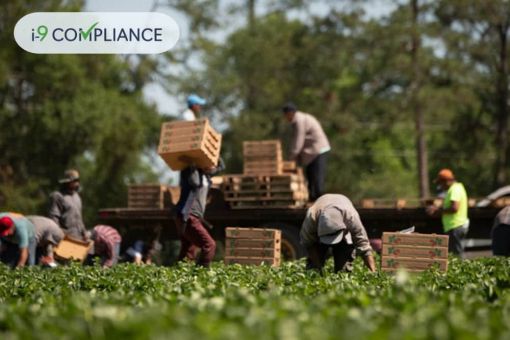First Circuit to Hear Appeal on State Law Restricting H-2A Guestworkers

September 25, 2022
The US Court of Appeals for the First Circuit will soon rule on an appeal from a lower court. The appeal addresses the lower court’s decision to block a state law that prohibited H-2A agricultural guest workers from hauling forestry products within the state.
The decision by the federal appeals court could determine whether states can place restrictions on individuals holding guest worker visas. Currently, no laws are in effect to limit employers’ use of guest workers when permitted by federal law.
People have wanted to restrict the use of guest workers for some time. Therefore, the outcome of this case has piqued the interest of many. They are curious to see whether state regulations will become a means to limit the usage of guest workers.
While the appeals court considers this case, federal legislators focus on the H-2A visa program. The legislators plan to address how many farms still struggle to obtain enough workers to fill available positions. This struggle led to higher demand for workers through the H-2A program, which does not have an annual cap.
The H-2A guest worker program allows agricultural employers to hire foreign farm workers for seasonal or temporary jobs for three years. However, employers must first obtain a Labor Department certification to hire these workers. This certification proves they could not find US workers to fill the available positions.
Employers who own over 50,000 acres of forest land in Maine cannot hire H-2A guest workers for hauling forest products between areas within the state. The state legislators explained that this restriction is due to employers’ preference to employ Canadian workers with these visas. They emphasized how this preference hurts employment opportunities for US workers.
The Maine Forest Products Council filed a lawsuit claiming that the law would lead to serious disruptions in the industry’s supply chain. They also argued that the law discriminates against H-2A guest workers and contradicts the Immigration and Nationality Act.
A US district court judge decided that the council would likely win their case, which led to the judge blocking the law from taking effect. The Forest Service Director and Maine Attorney General then appealed.
They claimed the state of Maine could place requirements on specific job positions in a specified industry. They base this claim on how an H-2A visa is based on job availability and whether employers meet the federal and state law requirements. Additionally, their appellate brief stated that the law would only apply to workers hired in the future, thus alleviating worries about canceled visas.
If the state succeeds and the law takes effect, it will be the first to place limits on the workers employers can hire as part of a federal temporary worker program. This success would be a significant change that could lead to similar laws in other states.
As these developments show, the laws about hiring foreign national workers are continuously changing. This constant change can make it hard for employers to keep up, and nowhere is this truer than in the employment eligibility verification process (Form I-9). Foreign and domestic workers must complete this process. One of the best ways to simplify this process is with an electronic I-9 management tool. Such tools can guide employers through the process while securely storing forms and documentation.
When it comes to your employees, automation makes eligibility verification quick and simple. Ensure compliance today with I-9 Compliance.